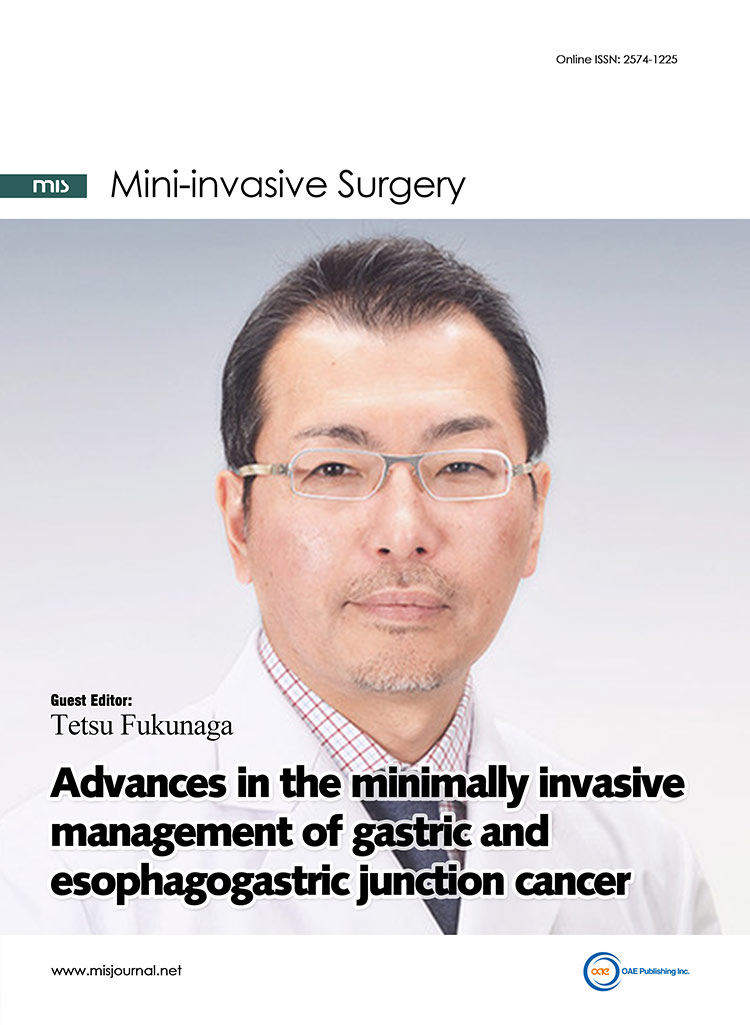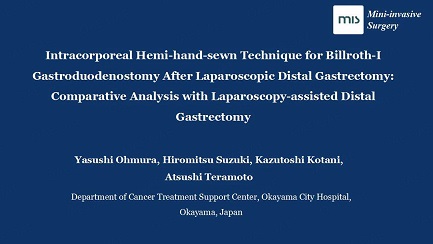
Topic: Advances in the Minimally Invasive Management of Gastric and Esophagogastric Junction Cancer
Guest Editor(s)
Special Issue Introduction
Management of gastric and gastroesophageal cancers is a complex, evolving paradigm. Data are conflicting with regard to the specific roles of surgery, chemotherapy, and radiation, particularly between Asian and Western studies. In gastric cancer, there are more patients with gastric cancer of early stage than before. Minimally invasive surgery is widely used in the treatment of these patients. Advanced gastric cancer may need chemotherapy with or without radiation, followed by surgery. Gastroesophageal junction tumors have been increasing in incidence over time, with most tumors presenting at a locally advanced stage. The treatment plan depends on the stage at diagnosis. Minimally invasive surgery can be done in most of early stage gastric and gastroesophageal junction tumors and also can be successfully applied to advanced gastric cancer with increasing experience. Minimally invasive management of gastric and gastroesophageal cancer has progressed rapidly with development of surgical instruments and techniques, especially in Asian countries, which helps decrease postoperative length of stay and morbidity from surgery. The overall aim of this Special Issue is to present and discuss recent advances in the minimally invasive management of patients with gastric and esophagogastric junction cancer.
Keywords
Minimally invasive surgery, gastric cancer, gastroesophageal cancer
Submission Deadline
31 Dec 2018
Submission Information
For Author Instructions, please refer to https://www.oaepublish.com/mis/author_instructions
For Online Submission, please login at https://oaemesas.com/login?JournalId=mis
Submission Deadline: 31 Dec 2018
Contacts: Anne Niu, Managing Editor, editorialoffice@misjournal.net






